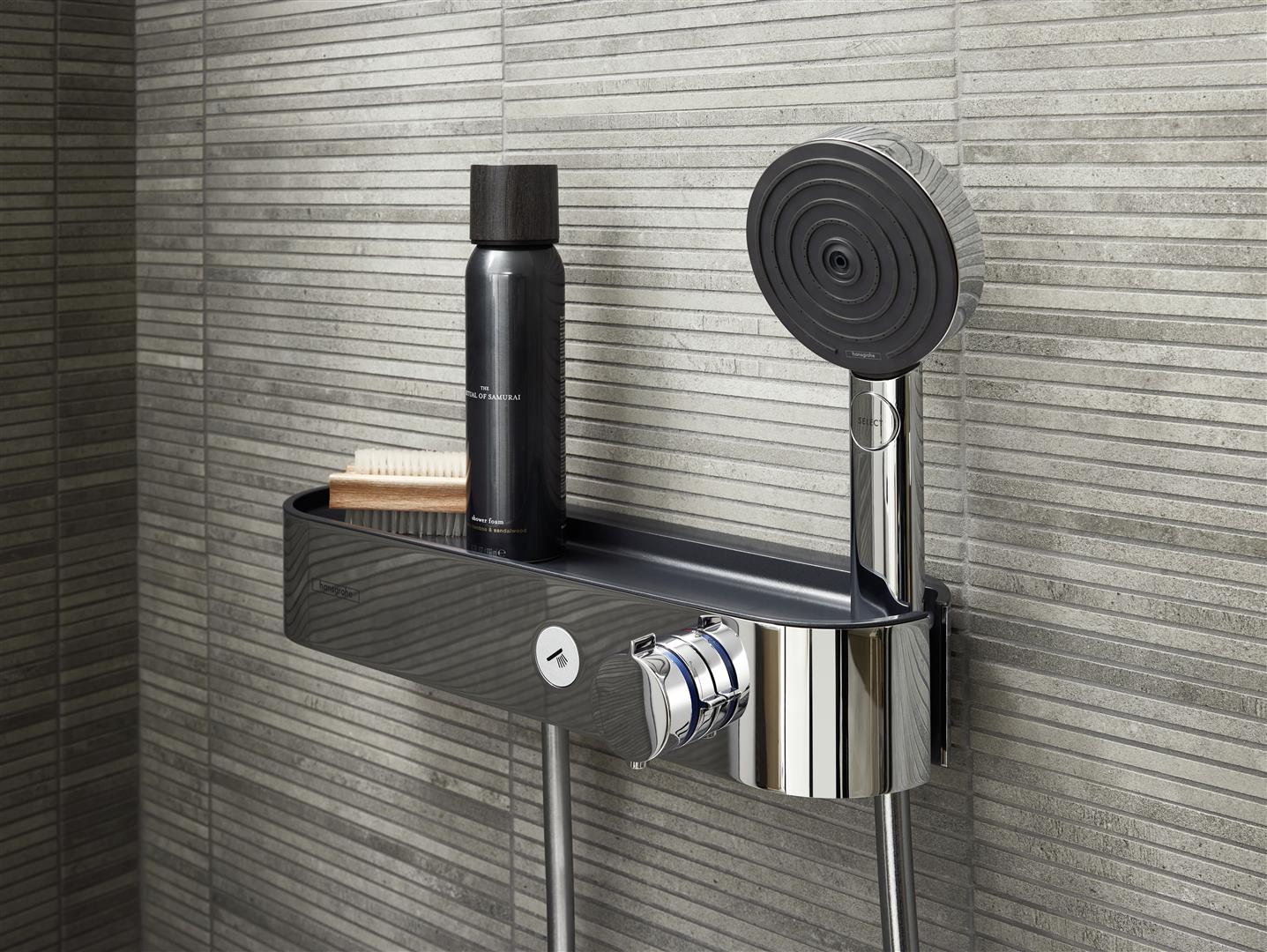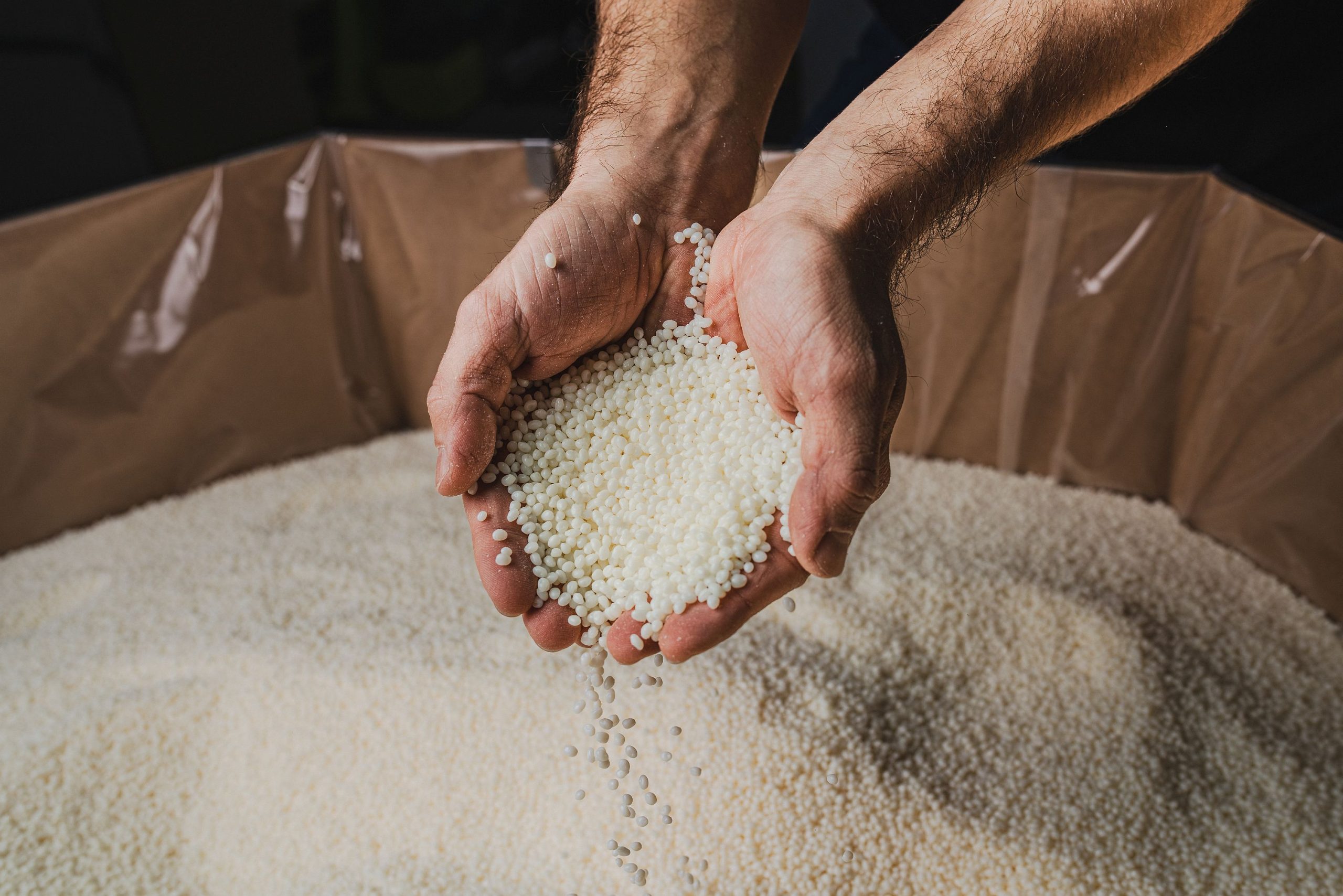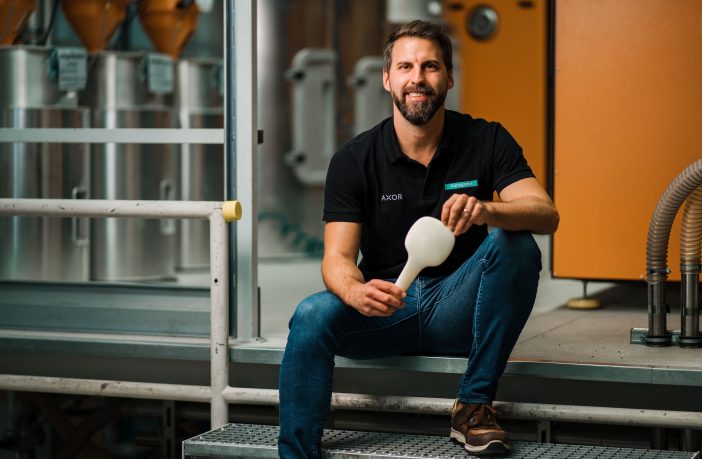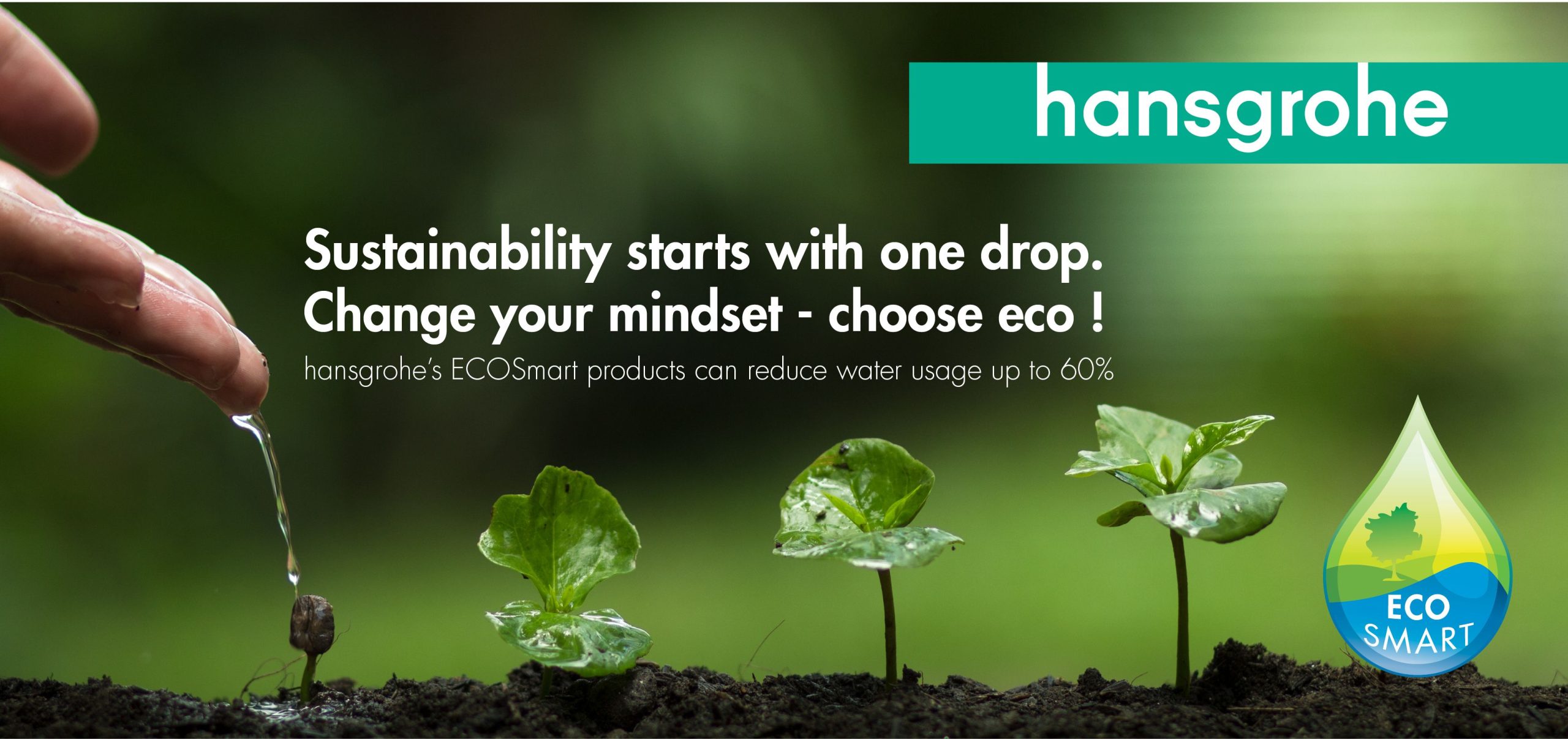- It goes without saying: durable quality products for the bathroom require high-quality raw materials and components.
- Faucet and shower manufacturer Hansgrohe uses ABS (acrylonitrile-butadiene-styrene copolymer) for around 45 percent of the plastics injection molding at its Offenburg production site.
ABS, one of the most widely used engineering plastics, is particularly suitable for electroplating due to its material properties, and it is thus the basis for the production of the noble surfaces of showers and accessories. As part of its sustainability strategy, Hansgrohe is continuously seeking alternative materials for the manufacture of its products that are sustainably produced from recycled or renewable raw materials. With the new ABS Novodur ECO P2MC B50, which was launched by INEOS Styrolution in September 2022, the sanitary manufacturer from the Black Forest can now also produce even more sustainable parts in its plastics injection molding shop.

The hansgrohe Pulsify Select EcoSmart hand-held showers feature a special flow control. Image credit: hansgrohe
Seamless Conversion to Bio-attributed1 ABS
From March 2023, Hansgrohe will produce all ABS parts using the new material Novodur ECO P2MC B50, which, according to the manufacturer, has a bio-attributed content of 50 percent compared to conventional ABS and, thus, has a CO2 footprint2 that is up to 71 percent lower. It is not always so easy to replace long-established materials with new, resource-saving materials without great expense and renewed quality testing. For more than two years, Hansgrohe plastics experts and the “Green Company” department have been continuously researching to identify sustainable raw material alternatives for the plastics injection-molded parts that meet Hansgrohe’s strict quality specifications. “Thanks to the unchanged properties of this bio-attributed ABS from INEOS Styrolution compared to the previously used material, we can now switch very quickly, which makes our internal processes easier,” explains Matthias Stunder, Head of Plastics Technology at Hansgrohe. “In this way, we have taken a further step to reduce CO2 emissions.”

Hansgrohe relies on new, sustainable ABS material for chrome-plated product components. Image credit: Hansgrohe
Frank Semling, Member of the Executive Board Operations Hansgrohe SE, is also pleased about the progress towards even more sustainable products in the plastics sector: “I would like to thank our supplier INEOS Styrolution and all the Hansgrohe teams involved for making the conversion to this sustainable ABS material Novodur ECO P2MC B50 so quickly and without complications. Hansgrohe is now the first INEOS customer from the sanitary industry to switch to this material. Of course, we hope for many imitators from all industries, because the more manufacturers that switch their plastics production to sustainable raw materials, the better it is for our collective carbon footprint and for achieving the 1.5-degree target of the Paris Agreement.”
Author: Bryan Groenendaal
Clean drinking water is becoming increasingly scarce. Do your bit to save water. You can start by retrofitting your tap and shower mixers at home with Hansgrohe EcoSmart technology.
Visit the Hansgrohe Showroom in Johannesburg to see the Rainfinity range in action.
Find a Hansgrohe Retail Store near you . Hansgrohe is present in South Africa, Madagascar, Nigeria, Kenya, Botswana, Seychelles, Mauritius, Namibia, Tanzania, Zimbabwe, Ghana and Zambia.
Plumbers have no comebacks when they fit hansgrohe tap and shower mixers with EcoSmart technology.
















